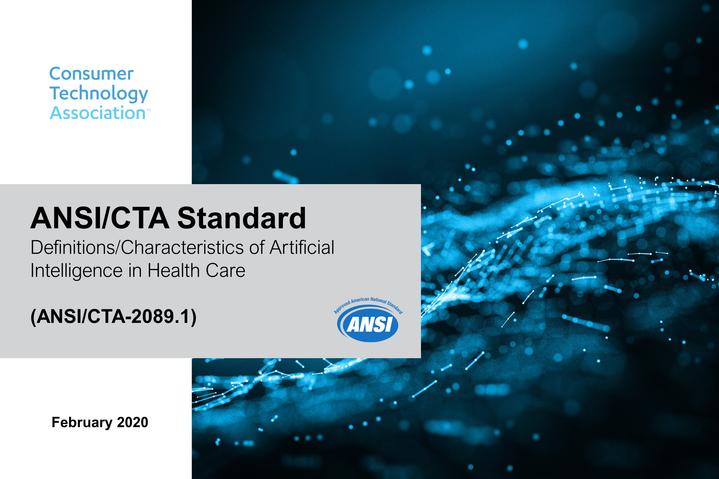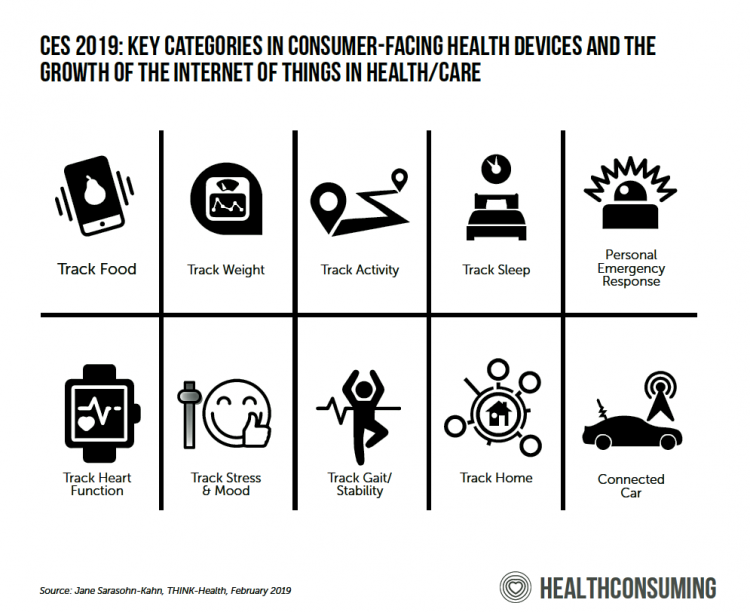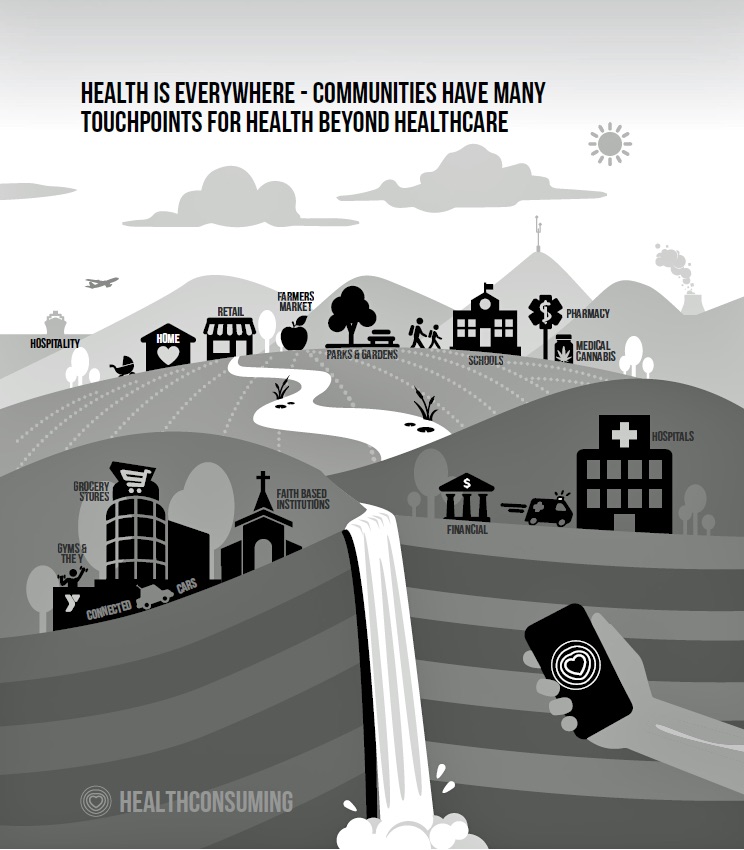The Consumer Technology Association (CTA), collaborating with industry stakeholders, has ushered in a standard for artificial intelligence in health care.

CTA is the membership organization for companies that innovate, manufacture and market consumer-facing tech like big-screen TVs, slick new autos, video games and voice assistants.
So what’s an organization like CTA doing with AI and health care?
Let me connect the dots.

Check out this graphic taken from my book, HealthConsuming: From Health Consumer to Health Citizen. This shows the ten categories of tech I revisit each year at CES, CTA’s annual mega-conference of new-new things in consumer electronics held in Las Vegas each January.
And those new-new things are, increasingly, “connected” — a growing number of which relate to some aspect of health care, wellness, personal safety, and good home-keeping that bolsters our holistic health.
The things are connected, and they generate data about our bodies, our selves, and indeed, our personal health and medical metrics – from head to toe, heart to feet, inside (say, blood glucose and oral health in our mouths) and outside (e.g., skin health). This is the growing Internet of Things for health and medical care.
All that data that we ourselves create in everyday life we wonky health-tech folks call “patient-generated data” if it’s medically-related or “consumer-generated data” if it’s more wellness, fitness, or non-medical. That personal information can get mashed up and analyzed along with data from our electronic health records and health insurance claims to create a fuller picture of us….helpful in personalizing medical treatments and health regimens that are unique to us. In the best of all worlds, that can lead us to better health outcomes, more effective care, and lower costs.
That analysis can be done using artificial intelligence, augmented intelligence, machine learning — contemporary modes of calculations that amass huge volumes of data quickly.
But AI uses algorithms, calculations that have assumptions that underpin them — and these can be biased. Furthermore, data can also be imperfect if it’s incomplete, incorrect, or otherwise “dirty.” You know the old adage: garbage in, garbage out.
So CTA collaborated with members who represent a broad and deep range of the health/care ecosystem to develop the ANSI/CTA Standard for AI in health care. The list is long, and runs through most of the alphabet from “A” to “X.” Some of the long list includes AT&T, AdvaMed, Amazon, and the ATA (formerly known as the American Telemedicine Association), Brookings, Doctor on Demand, Fitbit, Google, Humana, Mercedes, Microsoft, Philips, Validic and Verizon, among others.
Health Populi’s Hot Points: If you didn’t read this short-list carefully, you might have missed a couple of surprises: “Humana?” “Mercedes-Benz?” Members of the CTA who are keen on AI in health care?
Indeed. Look at my ten tech’s I monitor at CES. Connected cars are emerging as a “third space” for health and wellness, and Mercedes, Toyota, Honda, Audi and other car companies have been working on concept cars in health for years. For example, here’s my Health Populi write-up of Toyota, for example, and its wellness car from 2007. Yes, the connected car for health has been cooking for some time.

Now, consider Humana’s involvement. Humana — a health insurance company — joined the CTA last year. The point is that “health insurance” companies are morphing beyond the historic core business of “insurance,” and into health. And of course, effectively ensuring and insuring peoples’ health involves a lot of data beyond the traditional health insurance claim extending into social determinants of health, behavioral health, safe driving, eating well, and other daily life-flows.
That CTA shepherded this development is exciting and promising for helping to re-imagine and re-make health for people — where we live, work, play, pray, learn and shop. Health/care is everywhere. Making sure that health industry stakeholders are good actors and positive stewards of our personal health data is crucial as we go and grow forward in the emerging health care AI era.




 Thank you FeedSpot for
Thank you FeedSpot for